 Exports rose 3.7 percent in the fourth quarter, helped mainly by Ringit's decline against the dollar.
Exports rose 3.7 percent in the fourth quarter, helped mainly by Ringit's decline against the dollar.
 'Manufacturing and jobs growth are contracting and there are signs that services are starting to buckle'
'Manufacturing and jobs growth are contracting and there are signs that services are starting to buckle'
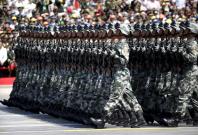 Beijing's military spending last year was over 10 percent of the budgetary spending, at $136.4 billion.
Beijing's military spending last year was over 10 percent of the budgetary spending, at $136.4 billion.
 Lee highlights the advantages of the united bloc, saying the combined population of 600 million will emerge as a significant consumer market.
Lee highlights the advantages of the united bloc, saying the combined population of 600 million will emerge as a significant consumer market.
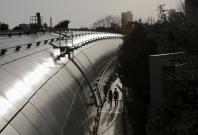 The more than expected contraction in the economy also spurred speculation about further monetary easing.
The more than expected contraction in the economy also spurred speculation about further monetary easing.
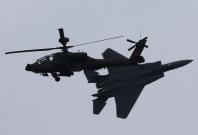 Lower oil prices and rising demand for travel can be used to open the skies further, Tharman said.
Lower oil prices and rising demand for travel can be used to open the skies further, Tharman said.
 North Korea says it was "kicking out" all South Koreans from the jointly run industrial zone and designates Kaesong as a 'military zone'.
North Korea says it was "kicking out" all South Koreans from the jointly run industrial zone and designates Kaesong as a 'military zone'.
 The complex produced around $500 million of goods in 2015, making it the biggest single contributor to inter-Korean trade.
The complex produced around $500 million of goods in 2015, making it the biggest single contributor to inter-Korean trade.
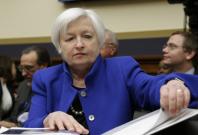 Yellen admits tighter credit markets, volatile financial markets, and uncertainty over Chinese economic growth posed greater risk to the US economy.
Yellen admits tighter credit markets, volatile financial markets, and uncertainty over Chinese economic growth posed greater risk to the US economy.
 Though the weak oil prices have depressed sentiment, it also means lower energy expenses for a whole lot of businesses.
Though the weak oil prices have depressed sentiment, it also means lower energy expenses for a whole lot of businesses.
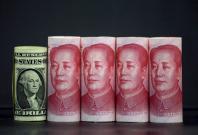 Chinese central bank has been under pressure to sell dollars to support its Yuan currency.
Chinese central bank has been under pressure to sell dollars to support its Yuan currency.
 Lee says the government will continue to support businesses and workers as 'we restructure and upgrade'.
Lee says the government will continue to support businesses and workers as 'we restructure and upgrade'.
 Malaysia accounted for 31.7% of the global palm oil production and 36.4% of global exports in 2015.
Malaysia accounted for 31.7% of the global palm oil production and 36.4% of global exports in 2015.
 Chinese economy woes spill over to the region, hitting economic sentiment in Beijing's main trading partners like Singapore.
Chinese economy woes spill over to the region, hitting economic sentiment in Beijing's main trading partners like Singapore.
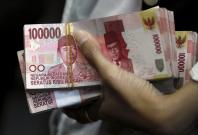 Indonesia's $800 billion economy, the biggest in Southeast Asia, picked up speed in the fourth quarter.
Indonesia's $800 billion economy, the biggest in Southeast Asia, picked up speed in the fourth quarter.















